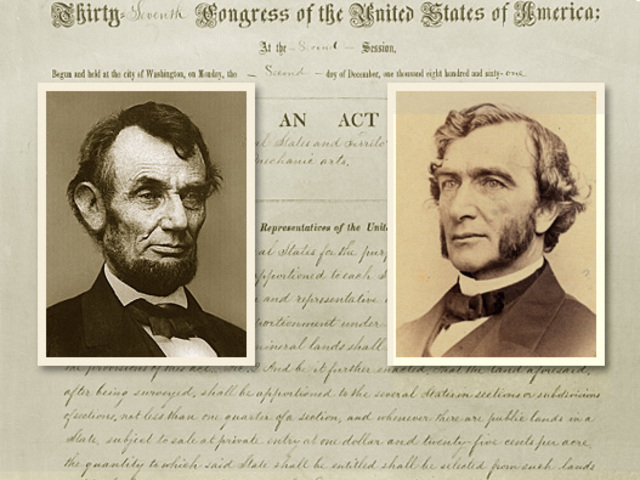The Morrill Land-Grant Act of 1862
In 1859, Congress approved the Morrill Land-Grant Act for the first time. The legislation failed to get enough support in the Southern states to override President James Buchanan's veto. Lincoln, who backed the legislation, saw it through Congress once more in 1862, and on July 2nd, 1862, he signed it into law. In 1890, it was later extended. According to the law as it was enacted in 1862, a state was given 30,000 acres of federal land in exchange for each of its senators and representatives in Congress. The states were given the land to build colleges and universities that would focus on teaching agriculture and industry, as well as "other scientific and classical subjects."
In 1859, Congress approved the Morrill Land-Grant Act for the first time. The legislation failed to get enough support in the Southern states to override President James Buchanan's veto. Lincoln, who backed the legislation, saw it through Congress once more in 1862, and on July 2nd, 1862, he signed it into law. In 1890, it was later extended. According to the law as it was enacted in 1862, a state was given 30,000 acres of federal land in exchange for each of its senators and representatives in Congress. The states were given the land to build colleges and universities that would focus on teaching agriculture and industry, as well as "other scientific and classical subjects."
The act gave rise to numerous universities, including Tuskegee University, Auburn University, University of Florida, and Louisiana State University. The Morrill Land-Grant Act may have had the greatest overall impact on American history and culture of any law enacted by an American president.












